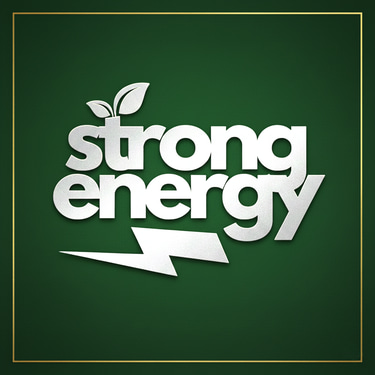
How EV Charging Companies Make Money (& How You Can Too)
Knowing how they make money gives you the power
ENTREPRENEURS


How Do EV Charging Companies Make Money?
And How Can You Make Money Too?
There are three main ways that EV charging companies make money. These include reselling the chargers, revenue sharing and networking fees. If you know this, you can position yourself better.
Introduction
The EV charging industry is still new and not yet widely understood. The market has various components that are easy to overlook. In addition, aspects are constantly changing and evolving.
The business involves different directions of money flow, payment methods, monthly fees, and revenue sharing. All of which can be complicated and overwhelming when you're first trying to grasp the concept. Today, we'll be simplifying the market and try understand what's going on out there.
Personal Experience
When I first joined the EV charging industry, I assumed it was as simple as buying an EV charger and plugging it into the wall. However, it turns out that there are many more factors to consider.
For Anyone Trying to Make a Profit from EV Chargers
This article is for entrepreneurs and anyone interested in making money from EV charging and understanding how the business operates. Whether you're considering starting your own EV charging business or adding a few chargers to a property you own, this post will provide you with the necessary information needed to be successful and make a profit.
The Goal - Knowledge So YOU Can Make Money
The more you know about how the EV charging companies make money, the better you can position yourself to strategically make money too. So, read on for all the details you need.
1. Reselling the Hardware (Chargers)
The first and most obvious way that EV charging companies make money is by reselling physical EV chargers. This is the most common question I receive: "how much do EV chargers cost?" While this represents only a fraction of the total project cost, it's a good place to start. There are EV charging hardware manufacturers all over the world. Tesla is by far the largest, located in New York. Outside of America, Switzerland and China follow closely behind.
Mark Ups
In the world of EV charging, the cost of the chargers plays a significant role in profit margins. From a reselling perspective, the cheaper the charger, the higher the profit for the EV charging company. Many companies' business models heavily depend on the profits generated from reselling chargers. Therefore, they often source the most inexpensive chargers to apply a substantial markup and boost profits.
Level 2 EV Chargers
In this discussion, we'll focus on Level 2 EV chargers since they are the easiest to generate revenue from. Level 3 chargers are also a great business opportunity, but they operate on a much larger scale and their discussion deserves a separate post altogether.
Costs
You can purchase networked level 2 chargers for as little as $700. Most companies prefer to use good quality chargers, which cost around $1,000 and are resold for closer to $1,700. Most of the problems that arise aren't actually related to the functionality of the charger. The issues usually stem from keeping the charger connected to the network/internet.
2. Revenue Sharing
The second way EV Charging companies make money is through a method called Revenue Sharing. When an electric vehicle plugs into a level 2 charger in public, they usually have to pay for it. The fee is often based on kilowatts or sometimes by time. For example, the Flo chargers in my building cost $1.50 per hour, regardless of the amount of kilowatts used.
Percentage
The EV charging companies usually allow the Host (such as yourself) to set the fee for charging. They then take a small portion of this fee. For example, if the fee is set at $2.00 per hour, the EV charging companies may take a "revenue share" of 50 cents from that $2.00.
You’ll be Paying for the Electricity
Remember, you'll still be paying for the energy costs to your electricity provider, so revenue sharing can impact your profits. Therefore, it's important to negotiate so that the EV charging company receives the lowest possible percentage of the money generated through the chargers, allowing you to maximize your profits.
Electricity Costs
As previously mentioned, you'll be responsible for paying for the electricity going into the chargers. BC Hydro typically bills around 12 cents per kilowatt. Without knowing the kilowatt output of your chargers, it can be challenging to determine profit based on a kilowatt fee. For more details on this topic, refer to another post here.
Increased Draw on Electrical System
Remember that your EV chargers will increase the electrical load on your system, which may result in an increase in your rates. It may be wise to consult with your local energy supplier or a certified electrician to fully understand the costs before budgeting for a new EV charging system.
3. Networking Fee
The third way EV Charging companies make money is through the "Networking Fee". This fee is a favorite among these companies due to its reliability and it creates long-term stability because it is billed monthly. The EV charging companies will bill you a monthly rate for the chargers being connected to their network and for using their app and other services. These services include customer support, billing, and software updates.
Internet Connection
EV chargers located in commercial or residential buildings need to be connected to the internet. This allows the chargers to communicate with each other for load sharing and enables the EV charging company to monitor and remotely repair any chargers that are down or malfunctioning. This may also incur costs.
Cost of Networking Fee
These "networked" chargers use the internet to process payments and connect to the EV Charging app, such as Flo or HyperCharge. The EV Charging company bills the host (you) a monthly fee for this network connectivity. The Networking Fee can range from $20 to $100 per month per charger, so understanding the "networking fee" before choosing an EV Charging supplier is crucial.
The App
The functionality of an app is often an overlooked aspect of the EV Charging system. This app allows drivers to control the EV chargers and monitor the charge in real time. It also includes features like enforcing an idle fee, which bills drivers an additional fee for leaving their vehicles parked at the EV charging spot long after they're fully charged.
Do they Develop their own Apps?
Interestingly, most EV charging companies don't develop their own apps. Instead, they typically use third-party developers such as ChargeLab or EV Connect, which are companies that focus solely on EV charging software. However, these companies can be expensive to use. They often require the EV charging company to have a minimum number of chargers on the market before they consider allowing them to use their software. Due to these high costs, the EV charging company often passes these fees onto their hosts to cover the expenses. This is where the networking fee comes into play.
Before deciding to use an EV charging company's services, ensure they have a robust app and network management system. Ask if you can demo the app and test its functionality.
Carbon Credits
There is actually a fourth way that EV Charging companies can make money, and that is through Carbon Credits. Carbon Credits are probably the most exciting aspect of the EV Charging market, so I plan to create an entirely separate article to dive deep into Carbon Credits. Stay tuned for more.
Conclusion
The EV charging market feels like a gold rush right now. There are so many different ways to make money; people are trying to find various ways to get in. Whether it's through reselling hardware, revenue sharing, or networking fees, the potential is there. However, it's important to understand how the industry operates before diving in. Always remember to keep your customer's experience as priority number one, and the rest should follow.
As always, I have your back when it comes to making money from EV charging. If anything comes to mind, feel free to reach out. I'm happy to help.
Take Care & Best of Luck,
Strong Energy








